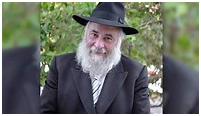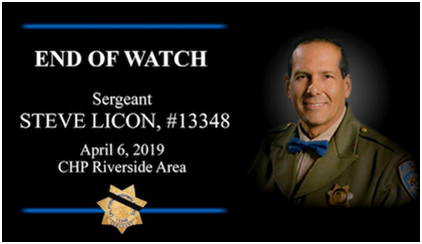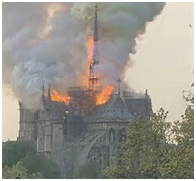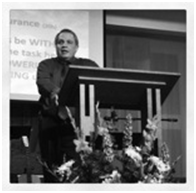[vc_row][vc_column][vc_single_image image=”949″ img_size=”full” alignment=”center”][vc_custom_heading text=”“A Piece of My Mind”” font_container=”tag:h1|font_size:50px|text_align:center|color:%232633ef” google_fonts=”font_family:Bitter%3Aregular%2Citalic%2C700|font_style:700%20bold%20regular%3A700%3Anormal”][vc_custom_heading text=”May 2019 Newsletter” font_container=”tag:h1|font_size:30px|text_align:center|color:%232633ef” google_fonts=”font_family:Bitter%3Aregular%2Citalic%2C700|font_style:400%20regular%3A400%3Anormal”][/vc_column][/vc_row][vc_row][vc_column width=”2/3″][vc_column_text]
Advancing Christian Faith and Values,
Defending Religious Liberty for All,
Supporting Civility and the Common Good
through Preaching, Teaching, Writing, Activism and Reasoned Conversations
www.donaldshoemakerministries.com[/vc_column_text][/vc_column][vc_column width=”1/3″][vc_single_image image=”687″ img_size=”full” alignment=”center”][/vc_column][/vc_row][vc_row][vc_column][vc_column_text]
Anti-Semitism Close to Home
“France, Germany, United Kingdom, Tree of Life Synagogue in Pittsburgh…
and now home here in Southern California. Anti-Semitism is ancient and modern. A classic anti-Semitic claim is found in Esther 3:8-9 –
”
“There is a certain people [the Jews] scattered abroad and dispersed among the peoples in all the provinces of your kingdom. Their laws are different from those of every other people, and they do not keep the king’s laws, so that it is not to the king’s profit to tolerate them. If it please the king, let it be decreed that they be destroyed.”
 In the United States all religions must be free to worship and exercise their religious convictions in safety. The attack on the Chabad Synagogue in Poway, California is doubly bad. It’s anti-Semitic to the core and it is an attack on everyone’s religious liberty in America. A heroic Jewish woman was killed; Rabbi Yisroel Goldsmith was one of three wounded.[/vc_column_text][/vc_column][/vc_row][vc_row][vc_column][vc_column_text]
In the United States all religions must be free to worship and exercise their religious convictions in safety. The attack on the Chabad Synagogue in Poway, California is doubly bad. It’s anti-Semitic to the core and it is an attack on everyone’s religious liberty in America. A heroic Jewish woman was killed; Rabbi Yisroel Goldsmith was one of three wounded.[/vc_column_text][/vc_column][/vc_row][vc_row][vc_column][vc_column_text]
Back the Badge
[Note: From time to time I want to have this new item in my newsletter. Information or input you have for this would be appreciated.]
Doing law enforcement along a fast, busy interstate highway is a task that risks constant danger for the Highway Patrol.
 The I-15 corridor near Lake Elsinore, California was a place of outstanding beauty this spring because of the “superbloom” of wild flowers due to abundant rainfall. The cars and crowds that came required extra CHP attention.
The I-15 corridor near Lake Elsinore, California was a place of outstanding beauty this spring because of the “superbloom” of wild flowers due to abundant rainfall. The cars and crowds that came required extra CHP attention.
On April 6 this segment of the highway was a place of tragedy as CHP Sergeant Steve Licon, a 27-year veteran of the CHP, was hit by a reckless driver who drove onto the shoulder of 1-15 and struck the officer and his motorcycle.
Sergeant Licon had this sign on his desk:
Dear God, I pray that my time will be the best today.
That you watch over as I ride, and that you stay by my side.
Keeping me safe and my faith intact,
I know all will go well if you have my back.
God, it’s time to throw a leg over and give it our best.
I’ll do the riding and you do the rest.
Sergeant Licon was the 32nd Line of Duty death in the United States this year.[/vc_column_text][/vc_column][/vc_row][vc_row][vc_column][vc_column_text]
First Amendment Vigilance –
Compromising the Confessional
 “I consider the government of the United States
“I consider the government of the United States
as interdicted by the Constitution from intermeddling with religious institutions,
their doctrines, discipline, or exercises.”
– Thomas Jefferson to Samuel Miller, 1808
[See endnote on the application of the Constitution to the states.]
First let me stipulate: I despise all abusers of children. When such abuse is done under the color of clergy it is all the more abhorrent. I want abusers exposed and punished to the full extent of the law. I want children protected by all reasonable means.
Now to the topic at hand: Compromising the Confessional.
Protecting children from abuse, especially from abuse by clergy, is as American as motherhood and apple pie. But what if the pie has a worm in it?
That “worm” is when the government intrudes impermissibly into matters of church governance and how a church practices its sacraments. *
In 1997 clergy were made “mandatory reporters” in California—obligated to report any instances where the clergyperson has reasonable suspicion that child abuse has occurred.
I embraced the goals of this effort, but I was against this new provision in the law at the outset for two reasons:
(1) It was the first instance to my knowledge of the state, in effect, placing something into the “job description” of clergy, thus requiring a certain kind of expertise in order to perform religious functions.
(2) I was also concerned about how this requirement (which also applied to non-clergy ministers of the church, such as a director of children’s ministry) could change the dynamics of church ministry in a negative way.
But this new requirement contained this significant exception: any confession of child abuse that arose during a “penitential communication” was exempt from the mandatory reporting requirement (CA Penal Code 11166 (d)(2)).
Now the state legislature is thinking about fixing this “loophole.” Senate Bill 360, authored by State Senator Jerry Hill (D-13th District, San Mateo and Santa Clarita south of San Francisco), would remove the penitential exemption.
So? Why should there even be a penitential exemption?
First, consider the Catholic “Sacrament of Reconciliation” (Penance). Quoting Canon 983.1 of the Code of Canon Law, the Catechism states, “The sacramental seal is inviolable, therefore it is a crime for a confessor in any way to betray a penitent by word or in any other manner or for any reason” (#2490).
“…[F]rom the time a person makes the sign of the cross and begins ‘Bless me father for I have sinned’ to the last words of absolution, the information exchanged between the priest and the penitent is protected by the sacramental seal. Even if a confession is made in a less formal atmosphere or in a less formal way, if a priest imparts absolution, what he absolves is under the sacramental seal never to be revealed by him.” – Catholic Straight Answers
A priest who hears a confession simply must not break the sacramental seal of confidentiality. To do so is to be automatically excommunicated. Priests have been martyred rather than break the seal. A law that requires a breach of this confidence will certainly be challenged in court as a violation of the First Amendment’s guarantee of the free exercise of religion. **
Second, what about the long-standing recognition of confidentiality involving Protestant clergy? I am an ordained Evangelical minister. Our context for a penitential communication is the private counseling session behind a closed door. *** Pastors are bound by ministerial ethics (many times by ordination vows) to keep confidential whatever is disclosed in confidence.
If a church’s leadership determines that a confession of wrong such as child abuse or elder abuse, or a threat to someone’s safety should be reported to authorities (whether legally required or not), it should make this clear prior to counseling by having the counselee read and sign an understanding of when confidentiality will NOT apply.
But this should be a decision of the church, not a mandate from the state.
What should be done? (1) Bills in any state’s legislature like SB-360 should be opposed throughout the legislative process. (2) Any law requiring clergy to divulge a penitential confession should be challenged in court. (3) Counseling procedures, policies and disclosures should be reviewed in light of the standards of confidentiality set forth by a church or denomination.
I will give the benefit of a doubt to supporters of SB-360 that they truly want to fight child abuse in ecclesiastical contexts. What has come to light in recent years is appalling and contrary to all that is Christian.
But I’m not naïve about the very clear anti-religion trend in our secular legislatures. There is simply insufficient regard for the “wall of separation” between church and state and for the necessary role of religion as an independent challenge against the ways of the state. And there is insufficient regard for things truly sacred.
I simply don’t trust the California legislature to do what is in the best interests of churches and religious institutions, nor do I believe it really cares.
Note on the Constitution: The “Bill of Rights” initially provided protections against the power of the federal government. But for almost a century the U.S. Supreme Court has applied most provisions of the Bill of Rights to the several states rather than limiting them to the federal government. This is based on “The Doctrine of Incorporation” through the Due Process Clause of the 14th Amendment.
* During Prohibition, churches that used sacramental wine for the Eucharist were exempt.
** A law forcing clergy to break the confidentiality of a penitential communication will surely be challenged in court. The Supreme Court may decide that the state has a compelling interest in requiring this—I doubt it. This conclusion would require that the statute pass a “strict scrutiny” test and the state demonstrate it has used the least intrusive means of furthering the compelling interest. The reason, in my opinion, for the high “strict scrutiny” standard is because the repeal of the confidentiality provision is not a neutral law of general applicability but one directed toward religious exercises and policies.
*** The standard is whether there is a reasonable expectation of confidentiality for the penitential communication. Private office—yes; restaurant booth—no; no one else may be present during the communication. The counselor should be licensed or ordained.
For more information: Pacific Justice Institute (www.pacificjustice.org), under “Media: Press Releases”)[/vc_column_text][/vc_column][/vc_row][vc_row][vc_column width=”1/3″][vc_single_image image=”1209″ img_size=”full” alignment=”center”][/vc_column][vc_column width=”1/3″][vc_single_image image=”1210″ img_size=”full” alignment=”center”][/vc_column][vc_column width=”1/3″][vc_single_image image=”1212″ img_size=”full” alignment=”center”][/vc_column][/vc_row][vc_row][vc_column][vc_column_text]
[PART 2] Evangelical Christianity: Beliefs and Practices
Southern California Interfaith Council “Religion 101” Series
(February 28, 2019)
Presenter: Dr. Donald P. Shoemaker
Pastor Emeritus, Grace Community Church of Seal Beach
In the April newsletter I presented four (of ten) characteristics of Evangelicalism. Here are the remaining six:
5. “Evangelicalism” has great variation in its movement
There is no “one size fits all” when it comes to Evangelicalism! While some might see this variation as weakness, it is very much a strength. The terms below, which describe various currents and cross-currents within the movement, are not exhaustive and do overlap in places:
• Baptistic traditions
• Calvinists and Arminians
• The Holiness Movement (Wesleyan)
• Pentecostals
• Fundamentalists
• Creedal and non-creedal Protestant denominations
• Sacramentalists and non-Sacramentalists
• Charismatic Roman Catholics
• Evangelical groups within mainline denominations
• Movements (the “Jesus Movement”, the “Charismatic Movement”, Revivalists, Restorationists, Separatists, Churches of the “End Times”) home schoolers and more)
• Evangelical “para-church” organizations (Campus Crusade, Salvation Army, Prison Fellowship, Samaritan’s Purse, Billy Graham Evangelistic Association, The Navigators, Intervarsity Christian Fellowship, secondary education, undergraduate and graduate schools, and many more)
6. “Evangelicalism” has many leaders but no official spokesmen, many movements within the Movement and without any central authority.
This is both good and bad. Much of the movement lacks authority structures, beyond local church or denominational structures or ad hoc accountability arrangements. On the positive side, this allows for much freedom of ministry.
But the opposite problem is there too: authoritarianism. “Little popes” abound, with absolute or near-absolute authority and with little or no accountability.
There are some strong voices within the movement. From the recent past, voices like Billy Graham and Charles Colson. Present voices include Rick Warren, Robert Moeller, Russell Moore, Franklin Graham, D. A. Carson, Beth Moore, Leith Anderson, Wayne Grudem and Michael Horton. But no voice speaks today with the recognition and respect of the late Billy Graham.
7. “Evangelicalism” has had more than its share of crooks, con artists, charlatans and crackpots, along with aberrant teachings.
No examples needed. They are self-evident. When will we ever learn?
8. “Evangelicals” increasingly have a cooperative spirit, subject to its commitment to its creeds and values.
• An apocalyptic “Why bother with this world?” attitude is less prominent today than in the recent past.
• Evangelicals have typically not been “joiners in the cause”. But today cooperation with non-evangelicals, secular or religious, is increasingly likely on issues where common values are held, so long as core convictions are not compromised.
• Evangelicals are unlikely to participate in worship experiences outside their confessions. My personal conviction is there must be agreement on The Apostles Creed and The Nicene Creed for us to have a foundation for worship together. But see the next point:
• The Doctrine of “Common Grace” provides a framework for cooperative social efforts between Evangelical Christians and people of other religions or no religion at all. (See my article: “God’s Saving Grace and God’s Common Grace”)
9. “Evangelicalism” has had a long and significant tradition of Social Reform though it has sometimes “gone into hiding”.
In the past, Evangelicals had a strong sense of social conscience.
• Abolition of slavery
• Temperance Movement, Women’s Suffrage
• Revivals and revivalists (Wesley, Whitefield, Edwards, Finney, Sunday) stood for the societal implications of the Gospel.
During the early 20th Century, however, there was a strong defensive withdrawal from culture in reaction to the growth of theological liberalism and the “Fundamentalist/Modernist controversies” of that period. Of course there were exceptions. But the movement’s general failure to support the Civil Rights struggle remains a blemish on Evangelicalism to this day.
Beginning in the 1940’s a renewed social consciousness began and it has become quite strong in the 1970’s and afterward. This has been a response to many different cultural developments, chief of which is permissive abortion.
Contemporary Social Issues in Evangelicalism (not always with agreement)
• “God and Country” – Evangelicals have somewhat of a “love/hate” relationship to U.S. They sense (in some way) that America is special by God’s design but is falling short of her moral calling.
• Pro-life – Evangelicals across the political spectrum are against abortion, though they differ on responses, depending on their heritage and their view of the role of the state.
• Family and Marriage issues
• Immigration Reform – LifeWay Research found that 66% of Evangelical pastors favor a pathway to citizenship for those now in the country illegally.
• Economic and Poverty issues, Hunger – Sadly these are not large issues in Evangelicalism; they are more on the level of helping in individual situations than addressing systemic causes.
• Religious Liberty, Persecution of Religions, Political Oppression. Even in the U.S. we see the state transgressing over into matters that should be in the domain of the church and decided by the religion-formed consciences of religious adherents.
• Human Trafficking, Genocide, Racism, Anti-Semitism.
• Sexuality and Gender issues
• Political range is from “Religious Right” to “Religious Left” (such as Sojourners). Of course, realistically, many more Evangelicals are “right” than “left.”
• Care of Environment—based on God as Creator (not pantheism) and humankind as caretakers. Evangelicals are not comfortable with many aspects of secular environmentalism.
10. “Evangelicalism” sets its sights on “The Kingdom of God”
“Your kingdom come, your will be done on earth as it is in heaven.” (The Lord’s Prayer, Matthew 6:10)
“The kingdom of God is not a matter of eating and drinking, but of righteousness, peace and joy in the Holy Spirit.” (Romans 14:17)
“[God the Father] has rescued us from the dominion of darkness and brought us into the kingdom of the Son he loves.” (Colossians 1:13)
“The kingdom of the world has become the kingdom of our Lord and of his Christ, and he will reign for ever and ever.” (Revelation 11:15)
These texts refer to either the “present kingdom” or the “future kingdom” of God (The Hidden Kingdom or the Manifest Kingdom).
Evangelicals see that the Kingdom of God is both here now and yet to come. To the extent it is “here now” we have a role to play in its furtherance. Our challenge today is to live the Kingdom’s values and persuade others to enter the Kingdom by faith.
Full establishment of the kingdom awaits the Return of Christ—failure to fully appreciate this leads to overly aggressive social activism today. Michael Horton states the role of the present Kingdom masterfully in his theology The Christian Faith (2012): “The Kingdom of God is no longer identified with any geopolitical kingdom on earth. It is no longer the era of driving the nations out of God’s holy land but of living side by side with unbelievers in charity. It is the hour of grace, not judgment.”
Recommended Reading
• AN EVANGELICAL MANIFESTO: Evangelical Identity and Public Commitment (2008)
• Systematic Theology and Politics and Christian Ethics by Wayne Grudem
• The Faith by Charles Colson
• The Evangelicals: The Struggle to Shape America by Frances FitzGerald[/vc_column_text][/vc_column][/vc_row][vc_row][vc_column][vc_column_text]
Message of the Month – The Cathedral Fire in Paris
 You needn’t be Catholic to feel a big lump of sadness in your throat as you watched the Cathedral of Notre Dame de Paris burn on April 15. The loss of this 850-year-old icon is incalculable, regardless of what remains and things saved by heroic people.
You needn’t be Catholic to feel a big lump of sadness in your throat as you watched the Cathedral of Notre Dame de Paris burn on April 15. The loss of this 850-year-old icon is incalculable, regardless of what remains and things saved by heroic people.
Here are my thoughts as the dust settles:
1. The “coming together” of people, religious and secular, in sorrow and resolve is remarkable. It will likely not last, but it is welcome.
2. European countries are very much overdue for creation of a healthy balance between church and state.
3. The destruction is a visual symbol of the broad loss of Christian influence in Europe. Secularism, a religion of sorts in itself, has been on the ascendancy. In my lifetime, only the impact of events related to Pope John Paul II were an exception to this trend. To visit most of the symbols of Christianity in Europe is to take a journey into the past.
4. The cathedral will be rebuilt—through resolve and great generosity on the part of people of good will. But it will never be the same. The prospect of rebuilding reminds me of the destruction of Solomon’s temple by the Babylonians (586 BC) and the new temple built when the Jews returned to their land after exile in Babylon (516 BC; see Ezra 3).
 5. Christians should pray for spiritual renewal throughout France and Europe. Perhaps this fire could be a catalyst for needed renewal.
5. Christians should pray for spiritual renewal throughout France and Europe. Perhaps this fire could be a catalyst for needed renewal.
6. No cathedral, be it ever so magnificent or any other structure serving the Christian faith is really the place where God dwells. God dwells, by his Spirit, in the spiritual temple—where believers, the living stones, are built on the Apostles and Prophets, with Jesus the Cornerstone (Ephesians 2:19-22).
Crowns and thrones may perish, kingdoms rise and wane,
But the church of Jesus constant will remain.
Gates of hell can never ‘gainst the church prevail;
We have Christ’s own promise, and that cannot fail.
– “Onward Christian Soldiers” by Sabine Baring-Gould (1864)
[/vc_column_text][/vc_column][/vc_row][vc_row][vc_column][vc_column_text]
 A trip to Ohio wasn’t very taxing
A trip to Ohio wasn’t very taxing
My wife and I went to Ohio a month ago into “Amish Country,” which we thoroughly enjoyed. We found the price of gas to be $1.25 or so cheaper than in California. And sales tax was half what we pay in Long Beach (10.25%).
But you say, “Yes, but Ohio’s roads are not like our roads!” For this, Ohioans can be glad. Or you might add, “But our taxes go to build the ‘Bullet Train.’” We won’t see that train in my lifetime. Or, even better, perhaps not at all.
Still, a portion of gasoline tax goes to support this train to nowhere.
Here’s the load on California’s drivers, that totals about $4 billion a year:
• Federal excise tax — 18 cents
• State excise tax — 42 cents
• State and local sales tax — 29 cents @ $4/gal (minimum, varies by locality)
• State underground storage tank fee — 2 cents
• Additional costs for compliance under Cap & Trade, as well as the Low Carbon Fuels Standard — 28 cents (this funds “Bullet Train” construction)
• “Mystery Surcharge” no one can explain — 28 cents
• Total — $1.47 per gallon
Gas taxes are generally regressive—they hurt lower income people the most.[/vc_column_text][/vc_column][/vc_row][vc_row][vc_column][vc_column_text]
 Don’s Upcoming Ministries
Don’s Upcoming Ministries
May 28 & 31, 2019 – Speak to women’s Bible study groups at Grace Community Church of Seal Beach on the Book of Ezra.
Don’s message of April 14: “The Triumphs and Failures of Israel’s Greatest King” (1 Kings 1-11) can be heard at www.gracesealbeach.org under “Resources”.
My Website: www.donaldshoemakerministries.com
Temporary contact: shoemaker@gracesealbeach.org[/vc_column_text][/vc_column][/vc_row]

